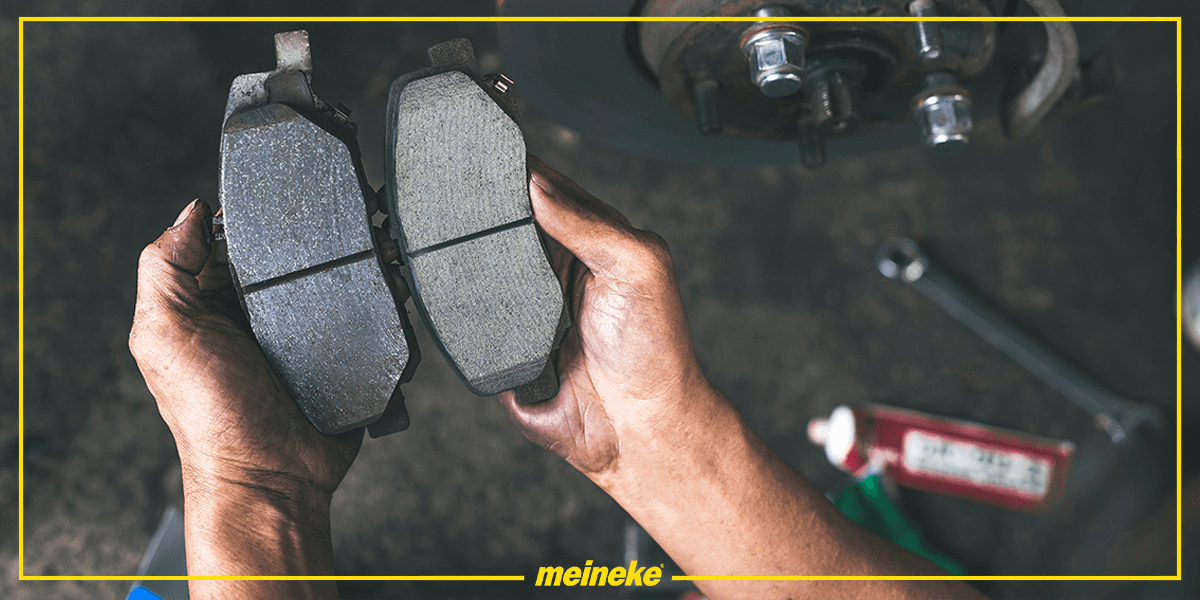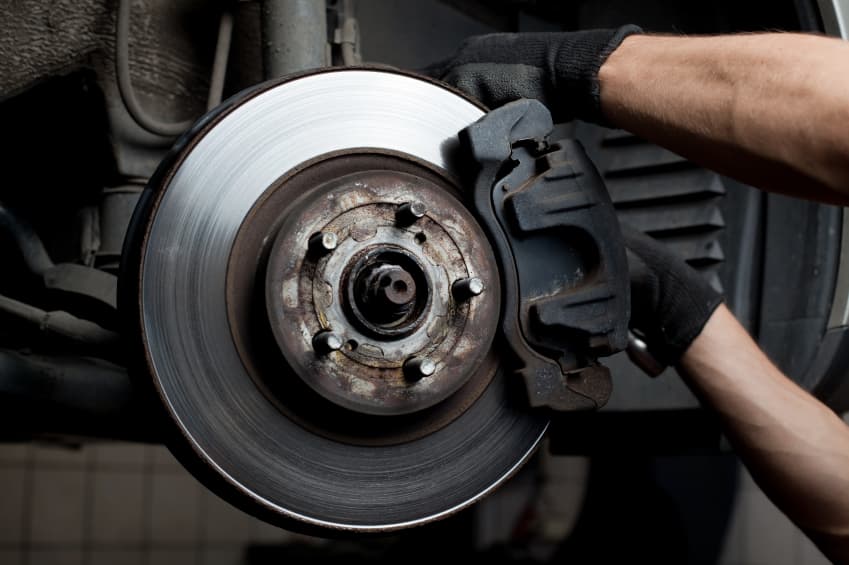
April 1, 2025
Why Are My Brakes Squeaking
Few sounds are as unsettling as squeaky brakes. Whether you're pulling out of the driveway or coming to a stop at a red light, that high-pitched squeal can be annoying—and sometimes even alarming. While some brake noises are harmless, others signal potential issues that require attention.
Understanding the causes of squeaky brakes can help you determine whether a simple fix will solve the problem or if it’s time to visit a professional.
Common Brake Noises Causes
Brakes play a crucial role in both the safety and performance of your vehicle. There are several common causes of brake noise, and understanding these causes can help you determine when it's time to take action and ensure your braking system remains in optimal condition.
Moisture and Temperature Changes
If your brakes squeak first thing in the morning but quiet down after driving, moisture is likely the culprit. Overnight dew, rain, or humidity can cause a thin layer of rust to form on your brake rotors. When you drive, the pads scrape away this rust, producing a temporary squeaking sound. Cold temperatures can also make brake pads harder and less flexible, leading to noise that subsides as they warm up.
Worn Brake Pads
Brake pads have built-in wear indicators—small metal tabs designed to create a high-pitched squeal when the pads become too thin. This noise serves as a warning that it's time for a replacement. Ignoring worn brake pads can lead to more significant (and expensive) problems, such as rotor damage or even brake failure. If your brakes squeak continuously and not just in damp conditions, schedule an inspection immediately.
Low-Quality or Hard Brake Pads
Not all brake pads are created equal. Cheaper or lower-quality pads may contain excessive metal content, making them noisier. Additionally, some brake pads are designed to be more durable, such as semi-metallic pads, but their hardness can contribute to squeaking. Ceramic brake pads, while typically quieter, may not be the best choice for every vehicle. Understanding your driving habits and choosing the right pads for your car can make a significant difference in brake noise and overall performance.
Dirt, Debris, or Glazing on Brake Components
Road dust, sand, and other debris can accumulate on your brake pads and rotors, leading to a squeaky sound when braking. In some cases, a simple cleaning can resolve the issue. Glazing, however, is a more serious concern. When brake pads overheat—often due to aggressive driving or riding the brakes—they can develop a smooth, hardened surface that reduces stopping power and increases noise. Once pads are glazed, you typically need a brake pad replacement.
Loose or Misaligned Brake Components
Braking systems rely on various small components, including calipers, shims, and mounting hardware. If any of these parts become loose or misaligned, they can create vibrations and squeaking noises. In some cases, a professional adjustment may be necessary to restore proper function to these intricate parts.
When to Be Concerned About Brake Noise
Some brake noise is normal, but certain warning signs indicate a more serious problem:
- Squeaking that turns into grinding: This suggests that your brake pads are completely worn down, and the metal backing is making direct contact with the rotors.
- Vibrations or pulsing in the brake pedal: Warped rotors can cause a shaking sensation when you press the brakes.
- Reduced stopping power or a soft brake pedal: If your brakes feel weak or unresponsive, it’s a sign of possible fluid leaks, air in the brake lines, or failing components.
Persistent brake noise should never be ignored, as it can compromise your safety and lead to costly repairs.
How to Stop Break Squeaking
Routine Maintenance
Regular brake inspections can catch potential issues before they become serious. Replacing brake pads before they wear down completely helps protect other components, like rotors and calipers, from damage.
Applying the proper lubricants to brake components also helps reduce noise caused by metal-on-metal contact.
Choosing the Right Brake Pads
Investing in high-quality brake pads can significantly reduce squeaking. Ceramic pads tend to be quieter and produce less dust, while semi-metallic pads offer better performance for heavier vehicles or aggressive driving. Your choice should be based on your driving style and vehicle needs. A professional technician at Meineke can help you select the best option.
Professional Brake Repair Service
While some minor brake noises may go away on their own, persistent squeaking often requires expert attention. Professional brake service ensures that your pads, rotors, and other components are correctly installed, aligned, and functioning optimally. At Meineke, we diagnose and fix brake issues quickly and efficiently, helping you stay safe on the road. Whether it’s a simple brake pad replacement, rotor resurfacing, or a complete brake system inspection, we provide reliable, high-quality service.
Don’t Ignore Squeaky Brakes—Get Them Checked Today!
Brakes are one of the most important safety features in your vehicle. While some brake squeaks are harmless, others indicate a problem that shouldn't be ignored. If your brakes are making noise, vibrating, or feeling weak, it's time for a professional inspection.
Schedule brake repair service today at your nearest Meineke location to ensure your vehicle stays safe and sound on the road.



